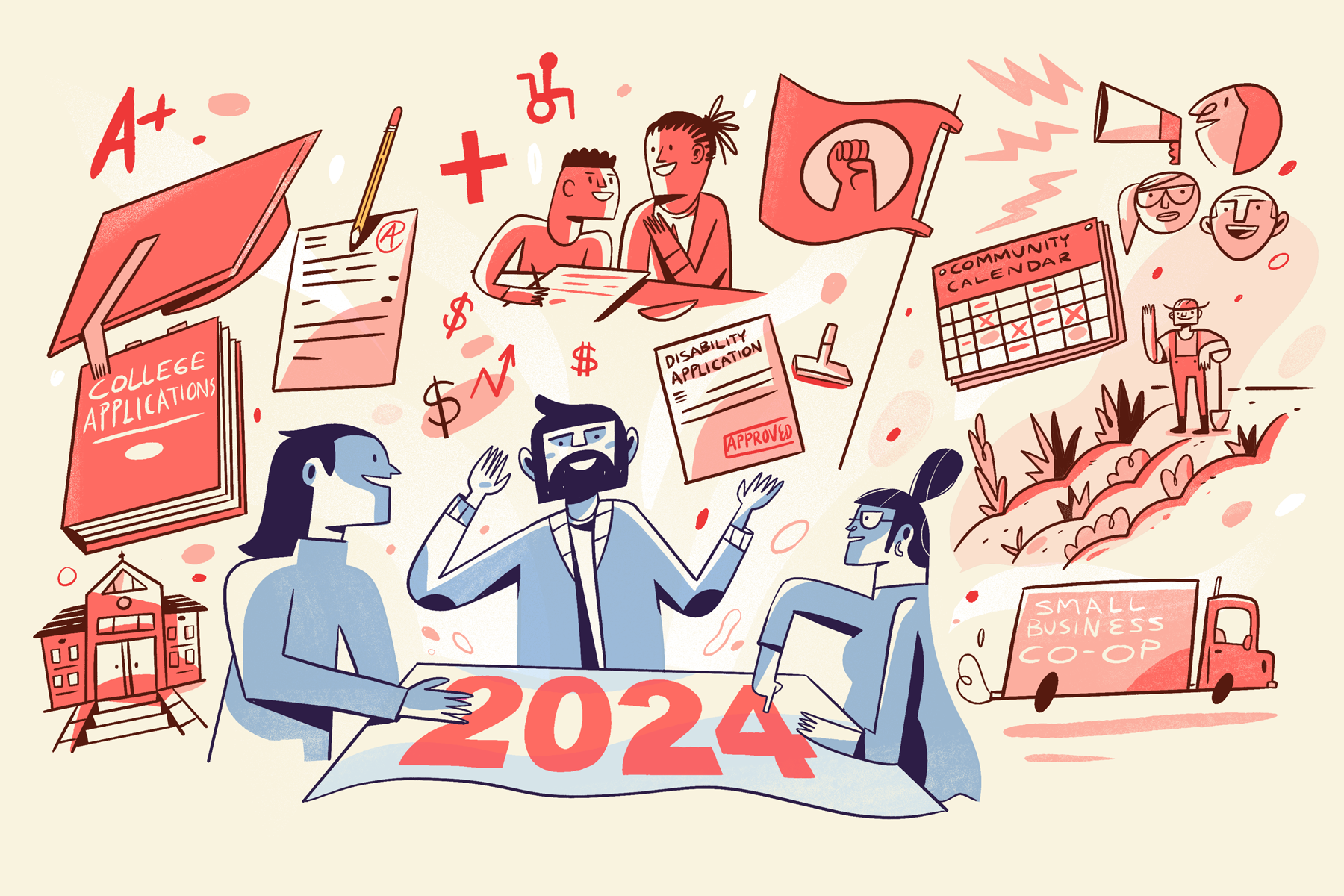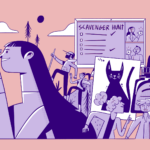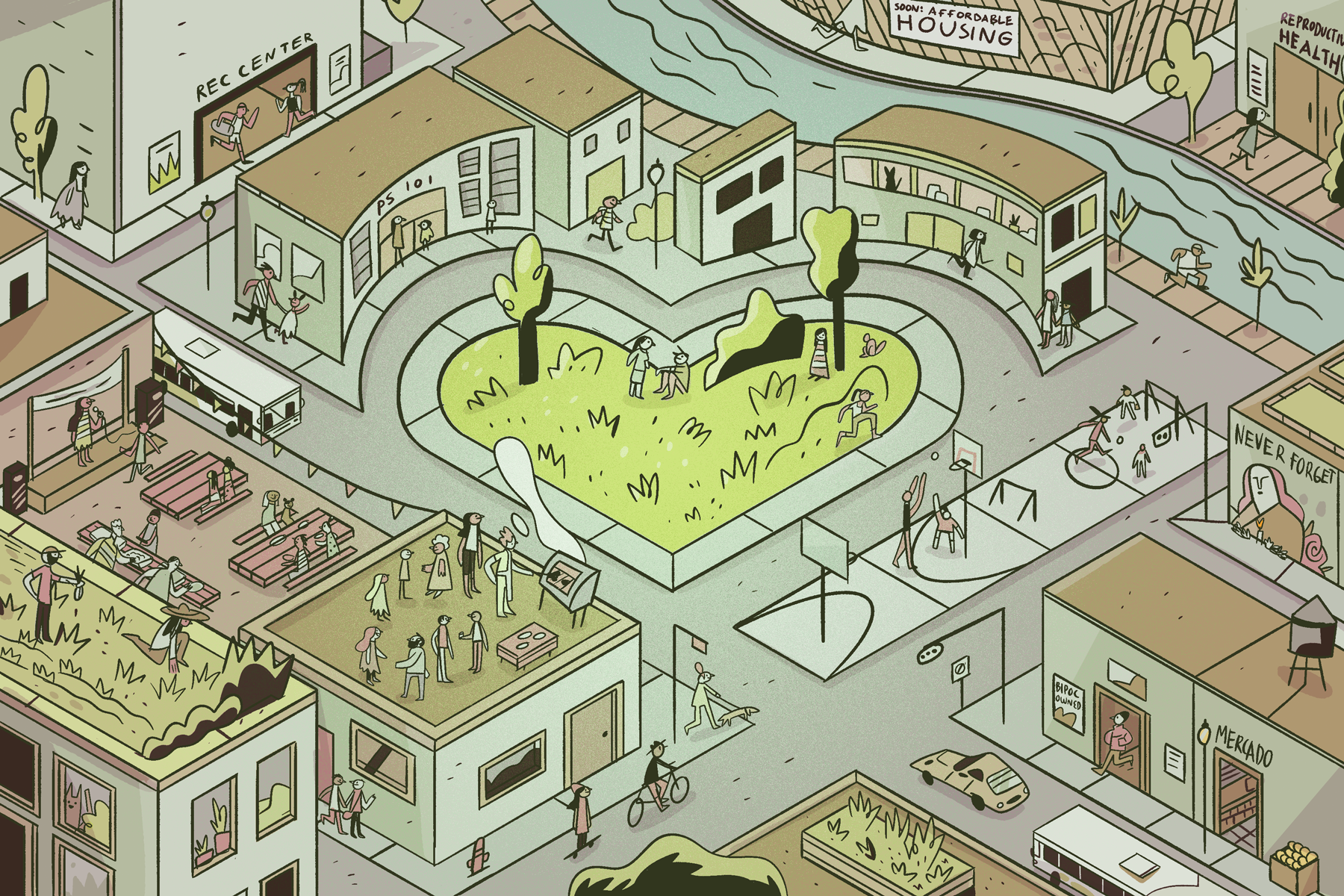
Problems Worth Solving in 2024: Charting a Path for Progress
As we embrace the optimism of a new year, our team is buzzing with the question: What challenges are we excited to tackle in 2024?
As avid problem solvers, we’re always on the lookout for areas ripe for innovation. After some collaborative brainstorming, we’ve compiled a wishlist of issues, big and small, that we believe are primed for a creative overhaul. True to our mission of expanding learning, creating opportunities, and deepening community connections, here’s what we’re thinking about – and we’re eager to hear your ideas too!
Education: Redefining Learning for the Future
- Revolutionizing College Selection: Navigating the college and major selection process is a daunting task, influenced by myriad factors like social ties, geography, and career prospects. How can we start this process earlier and incorporate a broader array of data and considerations to make it more meaningful and effective?
- Rethinking College Rankings: The current college ranking system is far from perfect. How about we shift our focus from rankings to aligning an institution’s strengths with students’ goals? Incorporating transparent outcomes and authentic reviews from current and past students could revolutionize this process.
- Centralizing Learning Management: Imagine managing your lifelong learning journey in one place – from daily practices to broader learning projects gathered from multiple sources. We envision a tool that simplifies this process, making all learning more integrated and accessible.
- Modernizing K-12 Curriculum: It’s time to move beyond just “learning to know” to a more holistic “learning to be and do”’ approach. Acknowledging diverse learning styles, this updated curriculum would better prepare students for a dynamic and ever-changing future.
- Updating School Schedules: Why do young children, buzzing with energy early in the morning, start school later than teenagers who struggle to wake up early? Let’s rethink school schedules to align better with students’ natural rhythms.
- Transforming Standardized Testing: We envision a shift from traditional multiple-choice tests to more diverse methods like project-based assessments and portfolios, offering students new ways to demonstrate their knowledge and skills.
- Simplifying Financial Aid: Navigating financial aid is notoriously complex. It’s high time we streamline this system to make education more accessible to everyone.
Opportunity: Building Bridges for Economic Mobility
- Accessible Childcare and Tutoring: High costs and limited options for childcare, after-school care, and tutoring create tough financial decisions for many families. We’re thinking of innovative ways to make these essential services more accessible, especially for families with special needs children.
- Streamlining Disability and Parental Leave Applications: The current process for applying for state short-term disability and parental leave is far from user-friendly. Let’s make it more straightforward and accessible.
- Bridging the Social Capital Gap: While skill-focused education opens new career paths, there’s still a significant gap in social capital and economic mobility opportunities. We’re exploring ways to close this divide.
- Navigating DEI Challenges: The recent pushback on diversity, equity, and inclusion initiatives highlight deep societal divides about how to reckon with our past. We need to continue to elevate the voices and vision of the folks most affected by systemic racism and invite people institutions into creating a more just future that works for everyone.
- Expanding Maternal Healthcare: How can we make maternal healthcare more holistic, including emotional supports like doulas, and offer more extended leave options?
Community: Fostering Inclusive and Sustainable Growth
- Revamping Community Input Processes: Current methods for community input often fall short. We’re imagining more equitable and effective ways for public participation in meetings and legislative sessions.
- Shared Infrastructure for Small Businesses: Imagine a community where small businesses share essential infrastructure like cold storage. This collaborative approach, especially crucial for food system innovation, could be a game-changer.
- Centralizing Community Calendars: Staying informed about community events can be challenging. A unified, community-wide calendar could be the solution to this disconnect.
- Rethinking Our Food System: In a country where food waste is rampant yet food insecurity persists, we’re driven to reimagine our food systems for greater efficiency and equity.
We believe a better tomorrow starts today. Let’s roll up our sleeves and turn these challenges into opportunities for a brighter, more inclusive future.







